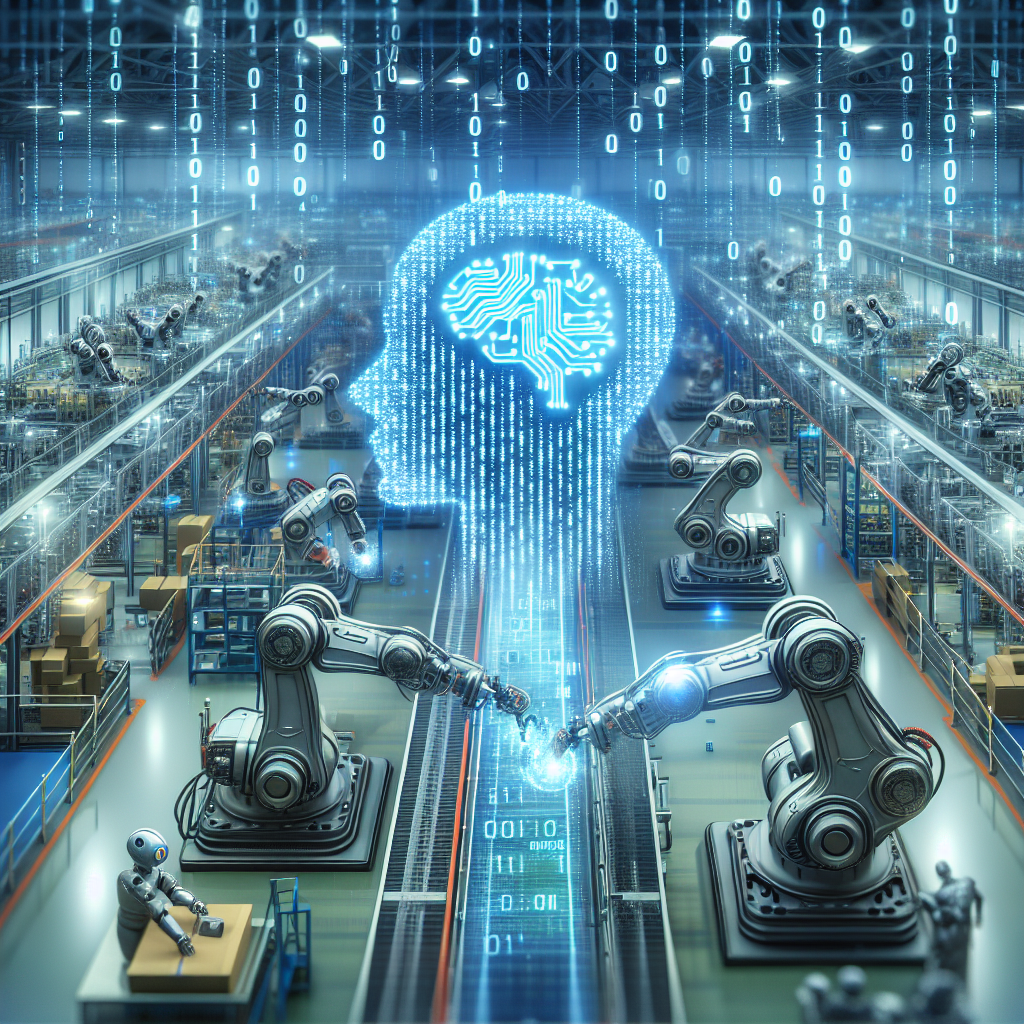AI Technology in Smart Manufacturing
Introduction
In recent years, artificial intelligence (AI) technology has made significant advancements in various industries, including manufacturing. With the rise of smart manufacturing, AI has become an essential tool for improving efficiency, productivity, and quality in the manufacturing process. By leveraging AI technology, manufacturers can analyze vast amounts of data, optimize production processes, and make real-time decisions to enhance overall performance. In this article, we will explore the role of AI technology in smart manufacturing and its impact on the industry.
Role of AI Technology in Smart Manufacturing
AI technology plays a crucial role in smart manufacturing by enabling manufacturers to automate and optimize various processes. Here are some key ways in which AI is transforming the manufacturing industry:
1. Predictive Maintenance: One of the significant applications of AI in smart manufacturing is predictive maintenance. By analyzing data from sensors and machines, AI algorithms can predict when equipment is likely to fail and recommend maintenance before any issues occur. This proactive approach helps manufacturers avoid costly downtime and maximize the lifespan of their machinery.
2. Quality Control: AI technology can also be used to improve quality control in manufacturing processes. By analyzing data from sensors and cameras, AI algorithms can detect defects or anomalies in products in real-time. This allows manufacturers to identify and address quality issues early in the production process, ensuring that only high-quality products reach the market.
3. Process Optimization: AI algorithms can analyze vast amounts of data to identify inefficiencies in the manufacturing process and recommend optimizations. By optimizing production processes, manufacturers can reduce waste, improve productivity, and lower costs. AI technology can also help manufacturers make real-time decisions to adapt to changing market conditions and customer demands.
4. Supply Chain Management: AI technology can be used to optimize supply chain management in smart manufacturing. By analyzing data from suppliers, inventory levels, and demand forecasts, AI algorithms can help manufacturers streamline their supply chain operations, reduce lead times, and improve overall efficiency. This allows manufacturers to respond quickly to market changes and deliver products to customers faster.
5. Human-Machine Collaboration: AI technology can also enhance human-machine collaboration in smart manufacturing. By automating repetitive tasks and providing real-time insights, AI algorithms can help workers make better decisions and improve overall productivity. This collaboration between humans and machines can lead to a more efficient and flexible manufacturing process.
Impact of AI Technology on the Manufacturing Industry
The adoption of AI technology in smart manufacturing has had a profound impact on the industry. Here are some key benefits of using AI in manufacturing:
1. Increased Efficiency: AI technology can help manufacturers optimize production processes, reduce waste, and improve overall efficiency. By automating repetitive tasks and providing real-time insights, AI algorithms can help manufacturers make better decisions and increase productivity.
2. Improved Quality: AI technology can enhance quality control in manufacturing processes by detecting defects or anomalies in products in real-time. This ensures that only high-quality products reach the market, leading to higher customer satisfaction and loyalty.
3. Cost Savings: By optimizing production processes and supply chain operations, AI technology can help manufacturers reduce costs and improve profitability. Predictive maintenance can also help manufacturers avoid costly downtime and maintenance expenses.
4. Enhanced Flexibility: AI technology can enable manufacturers to adapt quickly to changing market conditions and customer demands. By providing real-time insights and recommendations, AI algorithms can help manufacturers make informed decisions and respond to market changes effectively.
5. Competitive Advantage: Manufacturers that embrace AI technology in smart manufacturing can gain a competitive advantage in the industry. By leveraging AI to optimize production processes, improve quality control, and streamline supply chain operations, manufacturers can differentiate themselves from competitors and stay ahead of the curve.
Frequently Asked Questions (FAQs)
1. What are the key applications of AI technology in smart manufacturing?
Some key applications of AI technology in smart manufacturing include predictive maintenance, quality control, process optimization, supply chain management, and human-machine collaboration.
2. How can AI technology help manufacturers improve efficiency and productivity?
AI technology can help manufacturers improve efficiency and productivity by automating repetitive tasks, optimizing production processes, and providing real-time insights and recommendations to make better decisions.
3. What are the benefits of using AI technology in manufacturing?
The benefits of using AI technology in manufacturing include increased efficiency, improved quality, cost savings, enhanced flexibility, and a competitive advantage in the industry.
4. How can manufacturers integrate AI technology into their existing processes?
Manufacturers can integrate AI technology into their existing processes by collecting and analyzing data from sensors and machines, developing AI algorithms to optimize production processes, and training employees to work collaboratively with AI systems.
5. What are some challenges of implementing AI technology in smart manufacturing?
Some challenges of implementing AI technology in smart manufacturing include data privacy and security concerns, the need for skilled AI talent, and the upfront costs of implementing AI systems. However, the benefits of using AI technology in manufacturing outweigh these challenges in the long run.
Conclusion
AI technology is transforming the manufacturing industry by enabling manufacturers to automate and optimize various processes in smart manufacturing. By leveraging AI algorithms, manufacturers can improve efficiency, productivity, and quality in the manufacturing process. The adoption of AI technology in smart manufacturing has had a profound impact on the industry, leading to increased efficiency, improved quality, cost savings, enhanced flexibility, and a competitive advantage for manufacturers. As AI technology continues to evolve, it will play an even more significant role in shaping the future of manufacturing.

